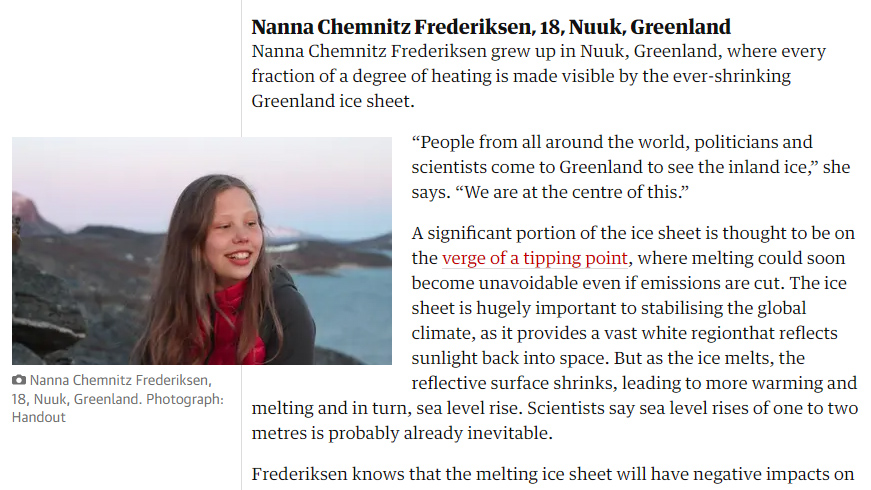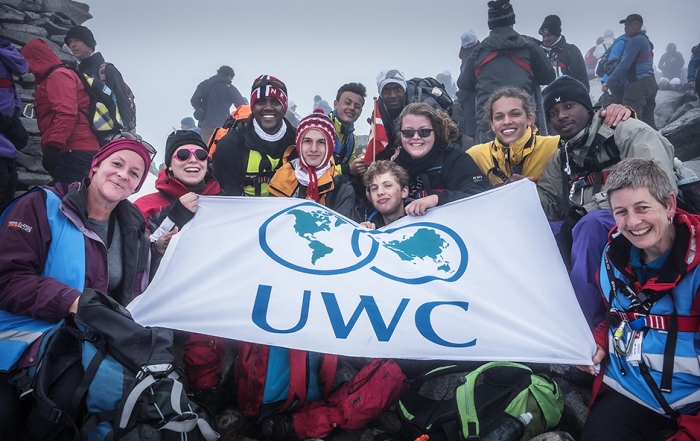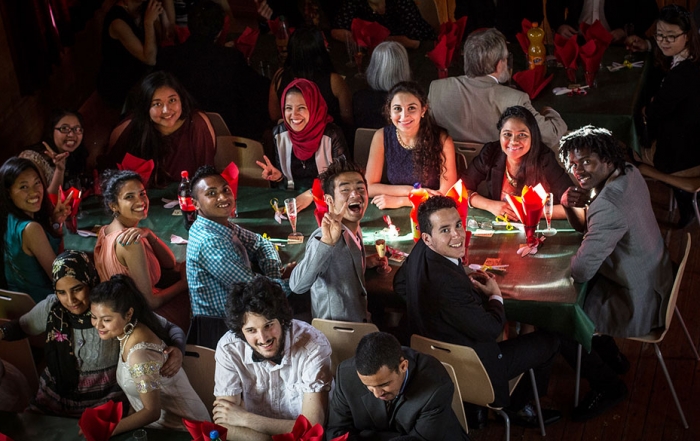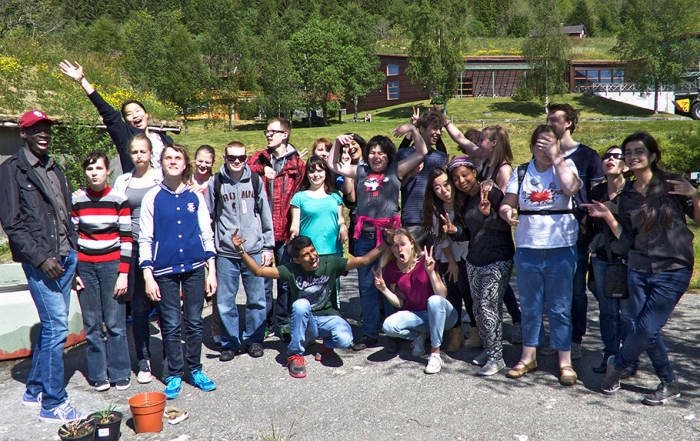“People from all around the world, politicians and scientists come to Greenland to see the inland ice,” she says. “We are at the centre of this.”
A significant portion of the ice sheet is thought to be on the verge of a tipping point, where melting could soon become unavoidable even if emissions are cut. The ice sheet is hugely important to stabilizing the global climate, as it provides a vast white region that reflects sunlight back into space. But as the ice melts, the reflective surface shrinks, leading to more warming and melting and in turn, sea level rise. Scientists say sea level rises of one to two metres is probably already inevitable.
Frederiksen knows that the melting ice sheet will have negative impacts on communities across Greenland, especially in northern settlements such as Qaanaaq where permafrost melting is destabilizing homes and roads and impacting how fishers and hunters operate.
But her real concern lies on the impact it will have globally. “I am not so scared of what the effects of the melting of ice in Greenland will be,” Frederiksen says, “It scares me what effect it can have for the rest of the world.”
Latest News
To the Top!
This year UWC Red Cross Nordic was invited to participate in the annual Red Cross event 'Til Topps', an ascent of Norway’s highest mountain, Galdhopiggen. Til Topps is the year’s most energetic multicultural integration event, [...]
Farewells
A year full of hard work, fun and togetherness is nearly over. We congratulate our graduating class and wish them all the best for their road ahead. For these two eventful years they have been [...]
Laski Visit
The second year RCN graduates left the College on Saturday 24th May, and early the following morning ten students and two teachers from the Laski Institute (Association for Care of the Blind) in Poland arrived for a [...]




